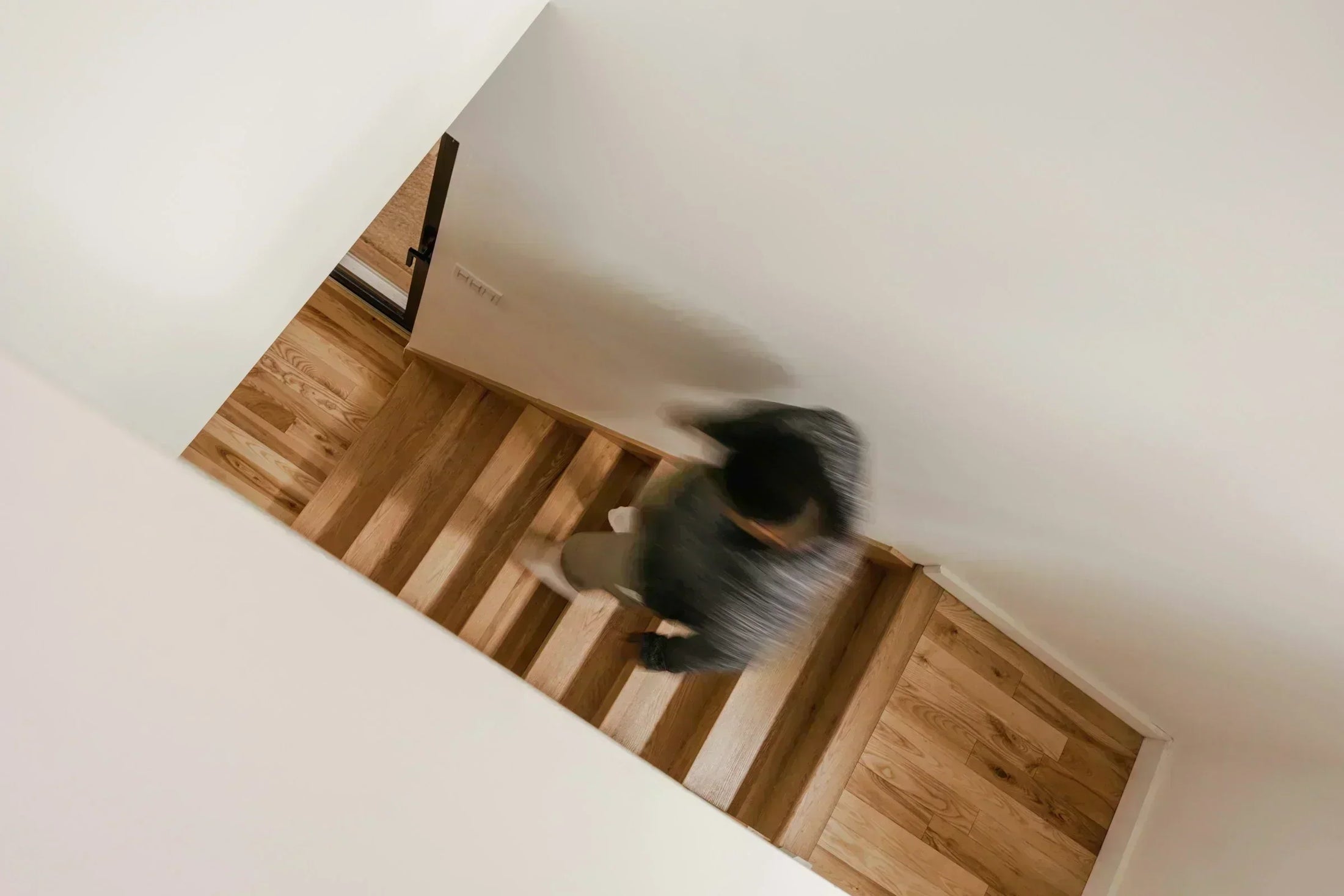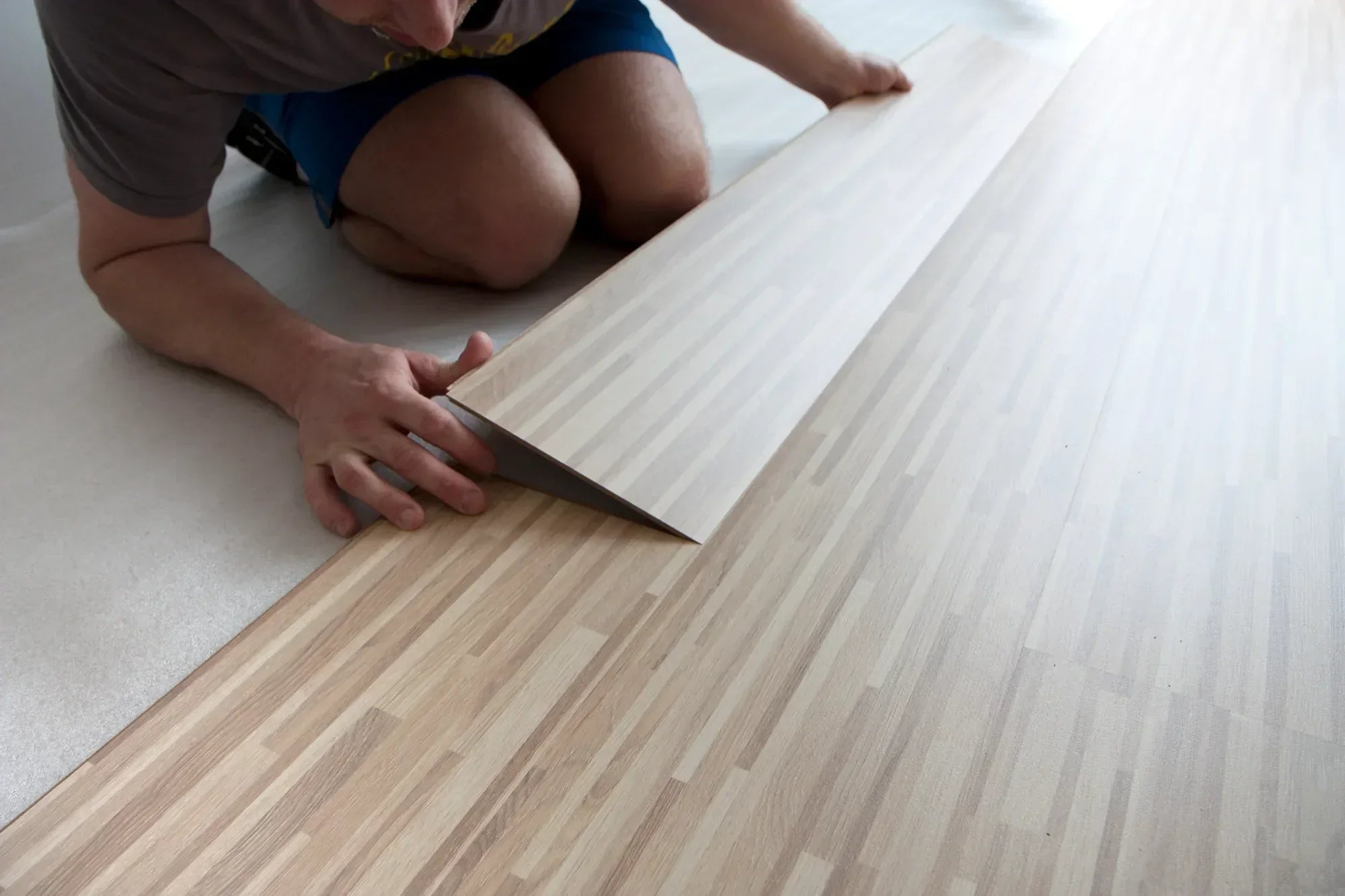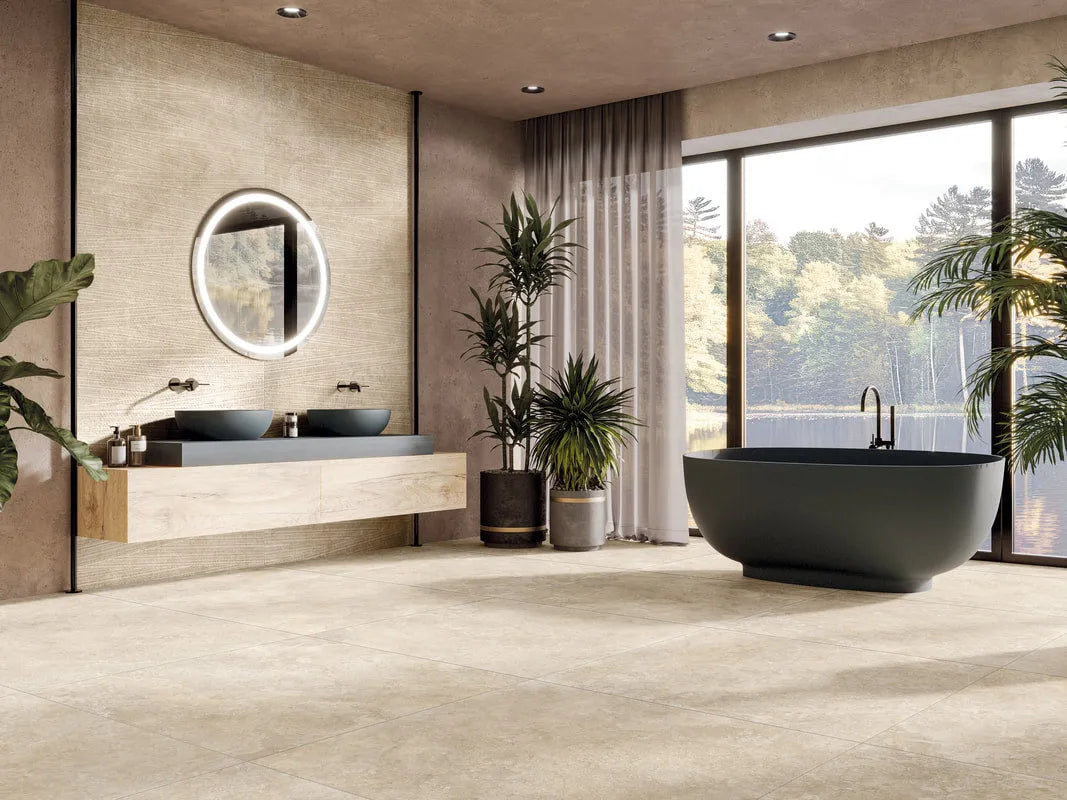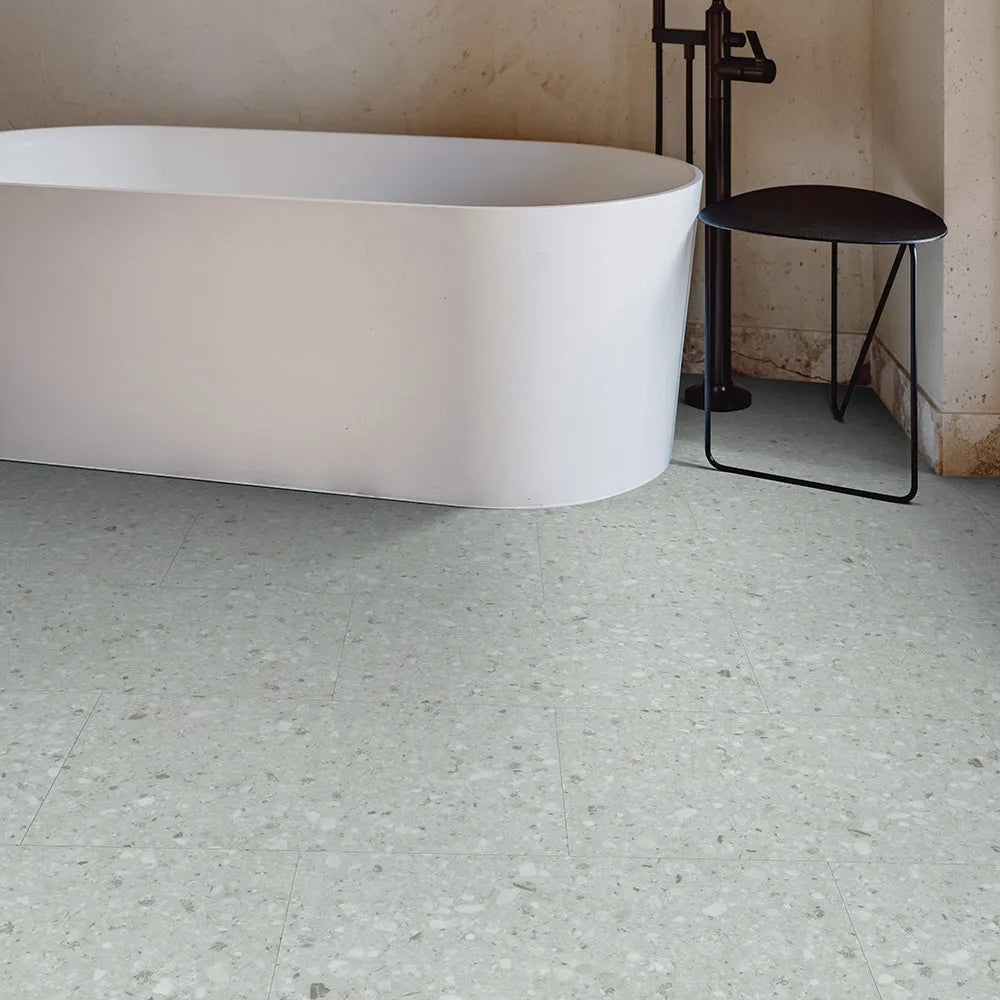Thinking about redoing your basement floor? Be careful! This isn't a project like any other. Basement flooring must be moisture-resistant , or you'll be starting all over again in a few months.
Every year, hundreds of homeowners have to rip out their new basement flooring because it's warped, moldy, or smells bad. The good news? These problems are preventable with the right advice.
In this article you will discover:
- Why Basement Flooring Is So Different From Other Floors
- How to Choose a Water and Moisture Resistant Basement Floor
- The Best Materials for a Durable Basement Floor
- How to Save Money in the Long Run with the Right Basement Flooring
Whether you're a DIYer or planning to hire a professional, these tips will help you make an informed choice.
What exactly is a basement floor?
The basement floor is the foundation upon which the entire layout of your lower space rests. Unlike upper floors, it is laid directly on a concrete slab, which is often exposed to moisture from the surrounding ground. This particularity requires choosing a flooring that can withstand water infiltration, moisture emanating from the concrete, temperature fluctuations, and daily wear and tear. The right basement floor must therefore offer strength, comfort, and protection against moisture to ensure the longevity of your investment.
Summary
-
How to Have a Beautiful Basement Floor Without Sacrificing Durability
-
The True Cost of a Basement Floor: What to Consider When Making Your Choice
Why Moisture Is Your Biggest Enemy in the Basement
A unique environment that requires a special floor
The basement isn't like any other room. It's colder, less ventilated, and most importantly, it's in direct contact with the ground. Your basement floor is subject to conditions that the rest of your home doesn't.
Even if your basement appears dry, moisture can seep in unseen and damage your floor over time.
The Three Enemies of Your Basement Floor
Your floor can be attacked by moisture in three different ways:
- Water infiltration : Water entering through cracks in the foundation
- Condensation : When warm air touches the cold surface of the concrete
- Rising damp : Moisture that slowly rises through the concrete slab
A regular basement floor won't last long against these problems. Even a little moisture can cause some materials to swell or rot.
How to Test If Your Basement Is Ready for New Flooring
The Plastic Test: Check for Moisture Before Installing Your Floor
Before choosing your basement floor, do this simple test:
- Tape a piece of clear plastic (like a freezer bag) to your concrete slab
- Seal the edges well with tape
- Wait 48 hours
- Check for condensation under the plastic
If you see water droplets, your slab is leaking moisture . Your basement floor will need to be highly water-resistant or you will need to address the moisture problem first.
Signs There Is Too Much Moisture for a Standard Basement Floor
Even without testing, these signs indicate that your basement is too wet for certain types of floors:
- Dark spots on concrete
- White lines (efflorescence) on concrete walls or floors
- Musty smell that gets stronger when it rains
- Peeling paint at the bottom of the walls
- Old floor coming off
When to Call a Pro Before Installing Your Basement Floor

If your test shows a lot of moisture or if you notice several of the signs above, consult an expert before choosing your floor. A specialist will be able to:
- Find the source of the moisture
- Suggest solutions (drain, waterproofing)
- Recommend the best flooring for your situation
Checklist: Is your basement ready for a new floor?
✓ No visible signs of moisture on the walls or floor
✓ Negative plastic test (no condensation)
✓ Clean concrete slab without major cracks
✓ No recent history of water damage
✓ Well-functioning French drain
✓ Humidity level in the air below 60%
The 5 Best Types of Water-Resistant Basement Floors
1. SPC Vinyl: The Champion of Basement Flooring
SPC (Stone Plastic Composite) vinyl is often the best choice for basement flooring . It is:
- 100% waterproof
- Rigid and stable even with temperature changes
- Easy to install without glue
- Available in several styles that mimic wood
The stone and plastic core of SPC is perfectly suited to the harsh conditions of a basement.
2. LVT Vinyl: Comfort and strength for your basement floor
LVT (Luxury Vinyl Tile) is more flexible than SPC, making it more comfortable underfoot. It's an excellent basement floor because it's:
- Highly water resistant
- Warmer than ceramic
- Easy to install even for DIY enthusiasts
- Available in highly realistic finishes
3. Ceramic: The most durable option for a wet basement floor
For very humid basements, ceramic remains a reliable basement floor:
- Completely waterproof
- Extremely durable
- Easy to clean
- Stain resistant
It is colder underfoot and more complex to install, but remains a safe bet for a basement floor.
4. Rubber Flooring: Practical Solution for Multi-Sport Basement
Rubber basement flooring, with floating installation, is perfect for:
- The exercise rooms
- Playgrounds
- The workshops
- The laundries
It is 100% waterproof, non-slip and shock absorbing, making it an ideal basement floor for active spaces.
5. Engineered wood: For a warm basement floor

If you really like the look of wood, engineered wood can work as a basement floor if:
- Your basement is very dry (negative moisture test)
- You install a good vapor barrier membrane
- You choose a superior quality product
This is the least water-resistant option on our list, but it can work in ideal conditions.
Basement floors to absolutely avoid
Never choose these materials for your basement floor:
- Solid hardwood : Warps with humidity
- Low-end laminate : Swells on contact with water and humidity
- Standard Carpet : Retains Moisture and Grows Mold Find out how hardwood flooring compares to engineered wood .
Why an Easy-to-Replace Basement Floor is a Smart Choice
No basement floor is immune to problems
Even the best basement floor can be damaged by:
- A sudden large water infiltration
- An undetected device leak
- A sewer backup
This is why ease of replacement should be a factor in your flooring choice.
What Basement Water Damage Can Really Cost
When a basement floor is damaged by water, the costs add up quickly:
- Moving furniture
- Dismantling the damaged floor
- Complete drying of the slab (may take several days)
- Purchase and installation of a new floor
- Replacement of damaged walls, moldings and baseboards
Choosing a Basement Floor That's Easy to Replace

Floating (locking) basement floors are the easiest to remove and replace:
- Damaged sections can be replaced individually
- No need to remove baseboards or moldings
- No glue to scrape off the slab
SPC or LVT clip-on vinyl is ideal for this reason.
Floating vs. Glued Basement Flooring: Pros and Cons
Floating basement floor:
- ✓ Easier to install yourself
- ✓ Can be disassembled and reinstalled
- ✓ Less expensive to repair
- ✗ May feel less solid underfoot
Glued basement floor:
- ✓ More stable feeling
- ✓ Can be more sustainable in the long run
- ✗ Very difficult to remove
- ✗ Expensive to repair if damaged
How to Have a Beautiful Basement Floor Without Sacrificing Durability
Choosing the Right Color for Your Basement Floor
In a basement that often lacks natural light, the color of your basement floor makes all the difference:
- Light tones : Visually enlarge the space and reflect light
- Dark tones : Absorb light and can make the basement appear darker
- Midtones : Hide dust and imperfections better
A light beige SPC vinyl basement floor can transform a dark space into a bright and welcoming room.
How to Visually Enlarge Your Basement with Your Flooring
The right flooring can make your space appear larger:
- Choose wide blades (7 inches or more)
- Install flooring diagonally in small spaces
- Opt for a matte finish rather than a glossy one
- Avoid overly busy patterns
Warm vs. Cool Tones: How to Choose for Your Basement Flooring
- Warm tones (beige, golden brown): Create a warm and comfortable atmosphere
- Cool tones (gray, taupe): Give a modern and clean look
The choice depends on the intended use of your basement. A family room often benefits from a warm-toned basement floor.
Decorating Tips: Making Your Basement Floor Welcoming

- Add a washable rug (which you can remove if it gets wet)
- Improve lighting with lamps at different heights
- Use furniture with legs to show more floor space
- Choose taller baseboards for a more luxurious look
The True Cost of a Basement Floor : What to Consider When Making Your Choice
Pay attention to the price displayed
The price per square foot is only part of the total cost of your basement floor. A basement floor at $2 per square foot can end up costing more than a $4 model if you consider:
- The vapor barrier membrane
- A special undercoat
- Glue and adhesives
- Special tools for installation
- Long-term sustainability
The Hidden Costs of a Low-End Basement Floor
An economical basement floor can lead to unexpected expenses:
- More frequent replacement
- Need special products for maintenance
- More complex repairs
Real Comparison: Budget Basement Flooring vs. Quality Flooring
Example 1: Economical vinyl basement flooring at $2.49/sq ft
- Floor price: $2.49/sq ft
- Underlayment required: $0.80/sq ft
- Installation: $2.00/sq. ft.
- Average durability: 5-7 years
- Estimated total cost: $2,645
- Cost over 15 years: approximately $5,290 (with replacement)
Example 2: SPC vinyl basement flooring at $4.29/sq ft
- Floor price: $4.29/sq ft
- Underlayment included: $0/sq ft
- Installation: $1.25/sq ft (easier to install)
- Average durability: 15-20 years
- Estimated total cost: $2,770
- Cost over 15 years: approximately $2,770 (no replacement necessary)
The difference is only $125 initially, but the premium floor saves you about $2,520 over 15 years!
The 3 Fatal Mistakes to Avoid with Your Basement Floor
Mistake #1: Choosing a basement floor just for its looks
Many homeowners fall in love with a floor without checking if it is suitable for a basement:
- Hardwood may look beautiful, but it will warp with moisture
- Low-end laminates may look like wood, but will warp upon first contact with water.
- Thick carpets are comfortable but retain moisture and mold
Solution : Choose your flooring first for its water resistance, and second, for its appearance.
Mistake #2: Confusing “water resistant” with “waterproof”
Not all "water resistant" basement floors are created equal:
- Water resistant : Can withstand some moisture for a short period of time
- Waterproof : Will not be damaged by water, even after prolonged contact
A basement floor that is simply "water resistant" can still be damaged if water seeps underneath.
Solution : For a basement, choose a 100% waterproof floor like SPC vinyl or ceramic.
Mistake #3: Skipping the humidity test step
Installing a basement floor without testing the slab for moisture is like building on sand:
- Even a waterproof basement floor can hide moisture problems that will worsen over time
- Trapped moisture can create mold and affect air quality
- The floor may look good, but hide problems that are getting worse
Solution : Always do the plastic test before installing a basement floor, regardless of the material chosen.
Comparison Chart: Which Basement Floor Is Right for You?
| Basement Floor Type | Water resistance | Comfort | Sustainability | Facility | Style | Price/sq ft |
|---|---|---|---|---|---|---|
| SPC vinyl | ★★★★★ | ★★★☆☆ | ★★★★☆ | Easy | ★★★★☆ | $$-$$$ |
| LVT vinyl | ★★★★☆ | ★★★★☆ | ★★★☆☆ | Easy | ★★★★★ | $$-$$$ |
| Ceramic | ★★★★★ | ★★☆☆☆ | ★★★★★ | Difficult | ★★★★☆ | $$$-$$$$ |
| Rubber | ★★★★★ | ★★★★☆ | ★★★★☆ | Average | ★★☆☆☆ | $$$-$$$$ |
| Engineered wood | ★★★☆☆ | ★★★★★ | ★★★☆☆ | Average | ★★★★★ | $$$-$$$$ |
| Hardwood | ★☆☆☆☆ | ★★★★★ | ★★☆☆☆ | Difficult | ★★★★★ | $$$$-$$$$$ |
| Economical laminate | ★★☆☆☆ | ★★★☆☆ | ★★☆☆☆ | Easy | ★★★☆☆ | $-$$ |
| Carpet | ★☆☆☆☆ | ★★★★☆ | ★★☆☆☆ | Easy | ★★★☆☆ | $-$$$ |
Conclusion
Choosing the right basement floor requires more consideration than choosing the right floor for any other room in your home. Moisture, potential leaks, and the unique conditions of the basement require a specially designed floor covering.
By following the tips in this guide, you'll avoid costly mistakes and choose a basement floor that will last for years:
- Always test for moisture before installing your floor
- Choose a truly waterproof material like SPC vinyl
- Don't forget to install a vapor barrier membrane
- Prefer a floor that is easy to replace if necessary
- Think comfort and appearance, but not at the expense of durability
Remember that a good basement floor is an investment that improves your quality of life and the value of your home. Take the time to make the right choice, and your floor will serve you faithfully for many years to come.
Do you have questions about your basement flooring project? Visit or contact us , and we will answer all your questions.
Frequently Asked Questions About Basement Floors
What is the best basement floor for a high humidity room?
SPC vinyl is generally the best flooring for wet areas. It's 100% waterproof and won't warp. Ceramic tile is also excellent, but it's colder underfoot and more difficult to install.
Is a floating floor really a good idea for the basement?
Yes, a floating vinyl floor (SPC or LVT) is ideal for most basements. It's easy to install, water-resistant, and easy to replace if necessary. Avoid standard laminate floating floors, which don't hold up well to moisture.
Do I always need to put a membrane under my basement floor?
In almost all cases, yes. Even if your slab appears dry, a membrane under your floor will provide additional protection against invisible moisture that can rise through the concrete.
Can I install hardwood as a basement floor?
No, traditional hardwood is not recommended for basement flooring. It absorbs moisture and warps easily. High-quality engineered wood can work in a very dry basement, but it's still risky.
Which basement floor is hottest for feet?
LVT vinyl and engineered wood are the most comfortable floors to walk on in winter. You can also install an insulating membrane under any floor for added warmth.
Can I install underfloor heating in my basement?
Yes, you can install a radiant heating system under most types of basement floors. SPC vinyl, LVT vinyl, and ceramic tile work well with radiant heating. Always check with the manufacturer for compatibility.



